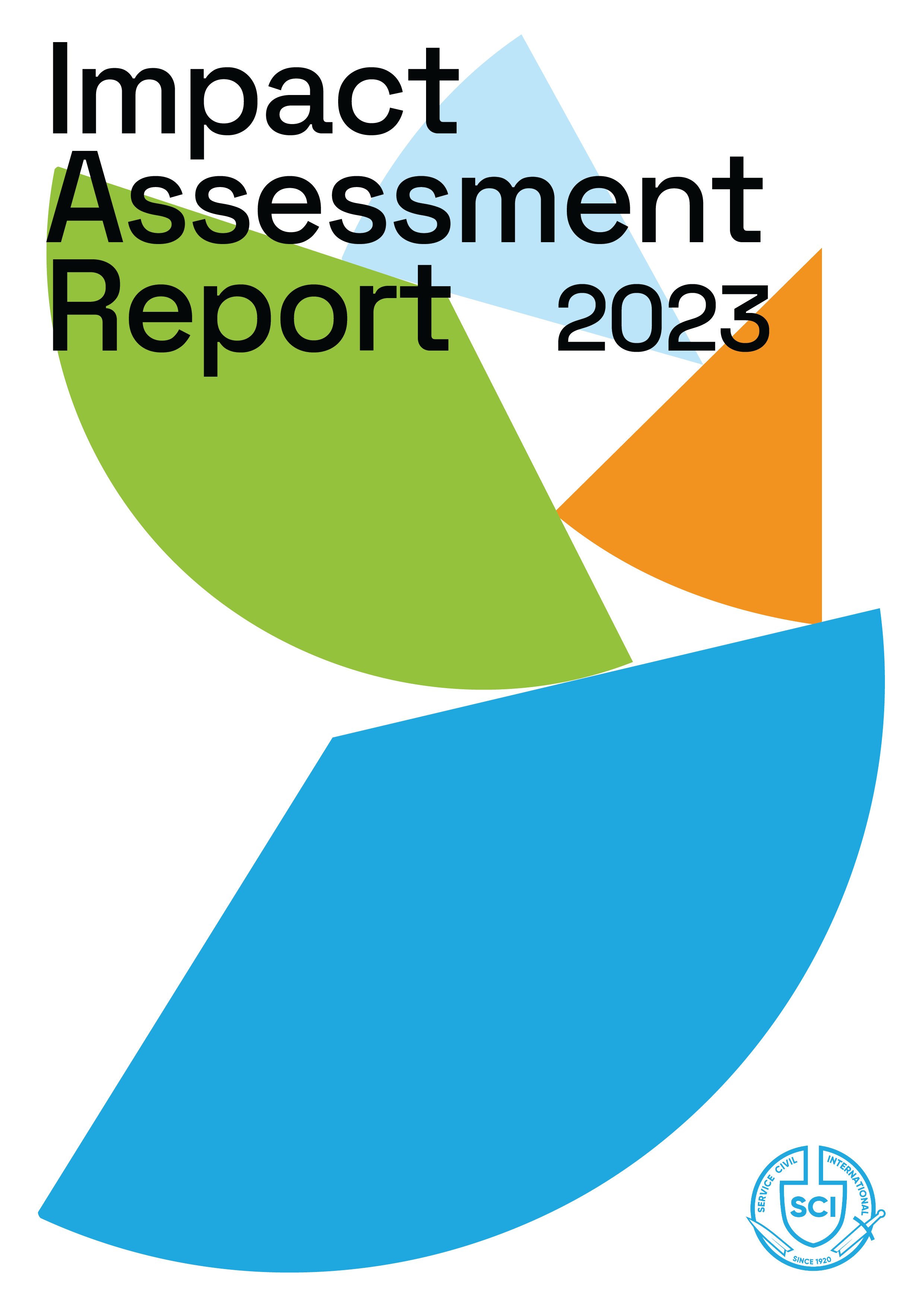Impact Assessment Report
Service Civil International (SCI) is an international voluntary service organisation established in 1920. It consists of 40 branches and groups in every continent and of more than 90 partners all around the world.
This report highlights the difference SCI’s initiatives are making around the world.
Through evaluations, it tells the story of how our efforts inspire volunteers, uplift communities, and help care for our planet.
Concept of Peace
When we talk about peace in SCI, we refer to the concept of positive peace, where different levels contribute to the attainment of true peace:
Inner Peace
Is sometimes referred to as “peace with myself”, or inner harmony, peaceful state of mind, and psychological well-being.
Peace with Others
Relates to the effects of our relationships, behaviours and communication towards other people and society at large. Living together in peace is about accepting differences and having the ability to listen to, recognize, respect and appreciate others, as well as living in a peaceful and united way.
Peace with Nature
Refers to the respect for the environment, a feeling of connection with nature, awareness of the link between one’s daily choices and the effect on the planet as well as the relationship between climate change and violent conflict, personal andcivic responsibility regarding sustainability, and active engagement in the protection of the planet.
Measuring impact at different levels
The framework assesses impact at three levels:
Participants
It focuses on personal growth areas such as inner peace, peace with others, and peace with nature. Indicators include self-awareness, self-esteem, inclusivity, and environmental consciousness.
Communities
It evaluates SCI’s impact within local communities, measuring cultural understanding, participation, and community perception of SCI’s work.
Environment
It analyses SCI’s environmental footprint, particularly in terms of CO2 emissions and broader sustainability efforts.
Impact Assessment Report 2023
The Impact Assessment Report 2023 shows what Service Civil International (SCI) is all about: creating a better world through peace, justice, and sustainable development, where volunteers grew personally, gained a deeper appreciation for other cultures, and strengthened their commitment to protecting our planet, where communities welcomed new ideas, embraced environmental action, built stronger connections across differences and together, we proved that even small actions can create meaningful change.
Download the full report and see the impact of SCI’s work in action.
Survey Results
In total, 168 volunteers participated in the baseline survey. From it, we can paint a picture of the typical SCI volunteers as being a young woman who reached a high level of formal education, has previous experience with volunteering but not necessarily with SCI and did not have an experience living abroad for an extended period of time.
Gender
%
Female
%
Male
%
Non-binary
%
Prefer not to say
%
Prefer to self describe
Age
-18
45-54
18-24
55-64
25-34
+65
35-44
Knowledge, attitudes and behaviour change
The choice of measures and indicators in this document was partly informed by the general understanding that behaviour change occurs in a logical order: by learning knowledge and new skills, people will change their attitudes and beliefs, which will, at the end, change their behaviour. This approach is widely used in the evaluation of a variety of programs, it ensures that all aspects of behaviour change are taken into consideration, providing a clear and logical structure for the evaluation process.

We found out that the changes we observed so far are reflected in the perception of the volunteers themselves. The majority of participants believe that the SCI activity they participated in created a significant shift in attitudes and behaviours towards peace, cultural understanding, environmental responsibility, and personal growth. Local communities reflected similar positive changes, with a strong belief in the power of volunteering and activism to address social issues.



